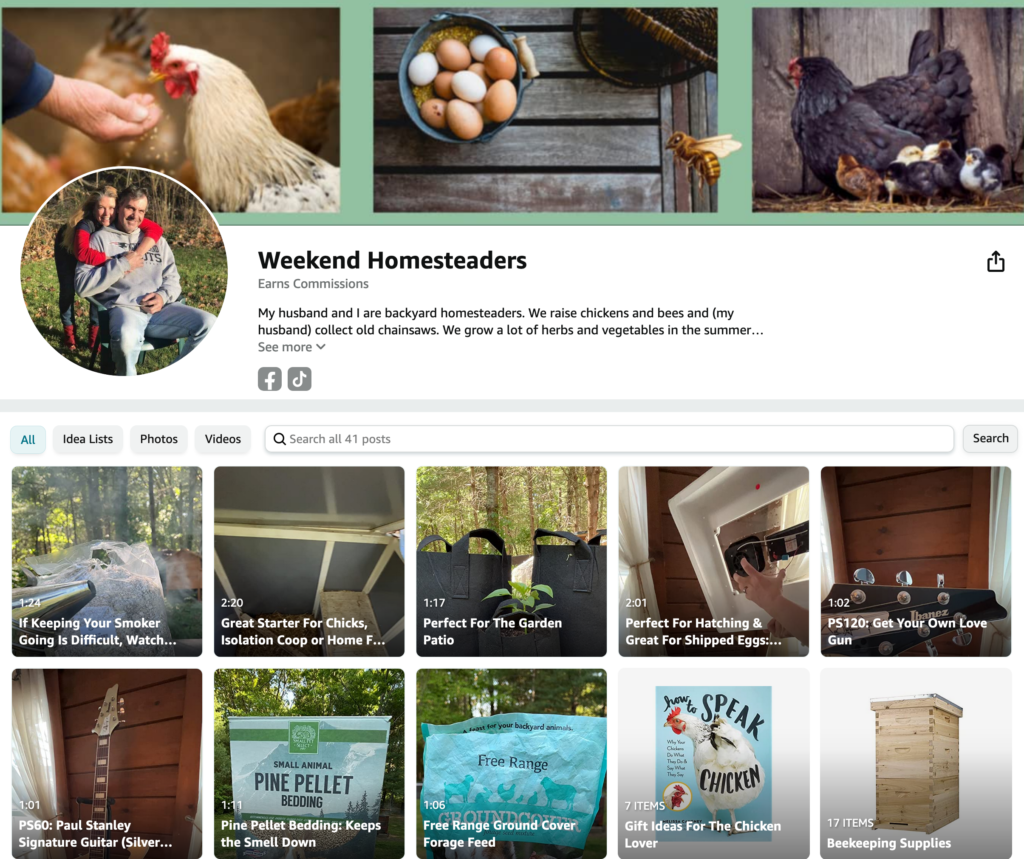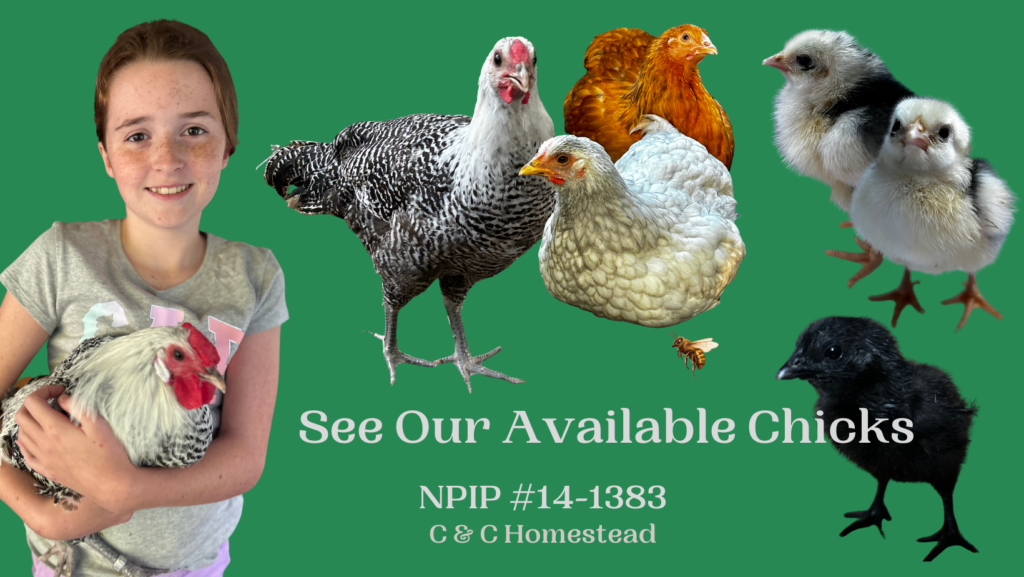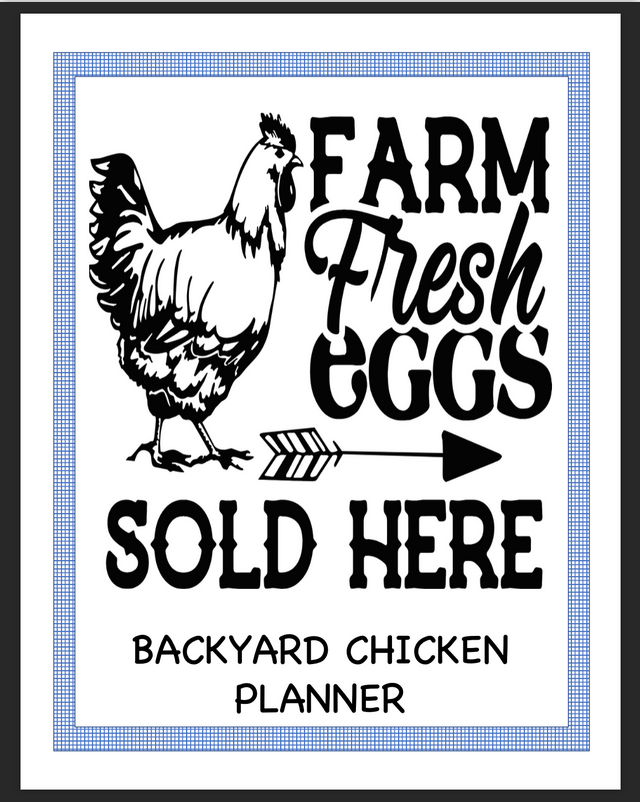Balancing Corporate & Homesteading Lifestyles
Immune System Support Guide
A strong immune system is critical for the health and longevity of your flock, whether you're managing hens, roosters, or a mixed flock. Healthy birds are better able to resist disease, recover from stress, and thrive in challenging conditions. This guide covers essential nutrition, immune-boosting supplements, and stress management techniques to maintain a resilient flock.
1. Nutritional Recommendations for a Healthy Flock
Proper nutrition is the cornerstone of a strong immune system. Whether you’re feeding hens, roosters, or both, ensuring access to high-quality feed and supplements is key to preventing illness and maintaining flock harmony.
Core Nutritional Needs
- High-Quality, Balanced Feed:
- Use a feed appropriate for your flock's stage of life:
- Starter Feed (18–20% protein): For chicks up to 8 weeks old.
- Grower Feed (16–18% protein): For pullets and cockerels (young hens and roosters) 8–18 weeks old.
- Layer Feed (16% protein): For laying hens and mixed flocks that include roosters.
- Note for Roosters: While roosters can eat layer feed when housed with hens, the added calcium may stress their kidneys over time. If possible, offer them a lower-calcium grower or all-flock feed, supplemented with calcium for hens separately.
- Fresh Greens and Vegetables:
- Greens are rich in vitamins and minerals that support immune function. Offer these 2–3 times per week:
- Examples: Kale, spinach, parsley, cabbage, and dandelion greens.
- Avoid plants toxic to chickens, like avocado skins, rhubarb leaves, and onions.
- Protein for Extra Support:
- During periods of stress, molting, or breeding, birds may need extra protein to maintain their strength. Offer:
- Mealworms, black soldier fly larvae, scrambled eggs, or cooked fish.
- Protein supports feather regrowth, immune cell production, and overall resilience.
- Fresh Water:
- Always provide clean, fresh water to the entire flock. Dehydration weakens immunity, especially during hot weather or illness.
Nutritional Tips for Roosters
- While roosters have similar dietary needs to hens, they are more active and may expend extra energy guarding the flock. Make sure they have constant access to feed and water, especially during breeding season.
2. Immune-Boosting Additives for the Whole Flock
Incorporating specific supplements into your flock’s routine can provide extra immune support and help prevent illness.
Key Additives
- Probiotics:
- Improves gut health, which is closely linked to immune function.
- How to Use: Add poultry-specific probiotics to feed or water weekly.
- Recommended Products: Sav-A-Chick Probiotics, Manna Pro Poultry Probiotic.
- Apple Cider Vinegar (ACV):
- Balances gut pH, improves digestion, and supports immunity.
- How to Use: Add 1 tablespoon of raw, unfiltered ACV per gallon of water.
- Frequency: 2–3 times per week in non-metal waterers.
- Garlic:
- Natural antibacterial and antifungal properties make garlic a great immune booster.
- How to Use: Add crushed garlic cloves to water (1 clove per gallon) or mix minced garlic into feed once a week.
- Vitamin and Electrolyte Supplements:
- Essential for times of stress, such as heatwaves, illness, or molting.
- How to Use: Add water-soluble vitamin/electrolyte mixes to drinking water as needed.
- Examples: Nutri-Drench or Rooster Booster Vitamins & Electrolytes.
- Herbs for Health: Add fresh or dried herbs to nesting boxes, feed, or around the coop:
- Oregano (antimicrobial).
- Mint (respiratory health).
- Parsley (rich in vitamins).
- Thyme (antibacterial).
3. Stress Reduction: Supporting Flock Harmony
Stress weakens the immune system, leaving both hens and roosters vulnerable to disease. Managing stress effectively helps prevent outbreaks of illness, particularly in flocks exposed to Marek’s Disease or other pathogens.
Stress Management for the Entire Flock
- Provide Adequate Space:
- Overcrowding leads to bullying, feather pecking, and aggression, which all suppress immunity. Ensure:
- Coop Space: 4 square feet per bird.
- Run Space: 10 square feet per bird.
- Reduce Aggression:
- Hens: Offer plenty of nesting boxes (1 for every 4 hens) and roosting space to reduce competition.
- Roosters: Limit the number of roosters to avoid fighting. Ideal ratio: 1 rooster for every 8–10 hens.
- New Birds: Introduce newcomers gradually by using a visible but separate enclosure for 7–10 days before integrating them.
- Prevent Predator Stress:
- Predators cause significant stress even if they don’t breach the coop. Secure the area with:
- Hardware cloth: Stronger than chicken wire.
- Motion-activated lights or alarms.
- A secure coop door that closes at dusk.
- Establish Routine:
- Chickens thrive on consistency. Feed, water, and close the coop at the same times every day to reduce anxiety.
Special Considerations for Roosters
- Behavioral Stress: Roosters naturally take on protective roles in the flock, which can lead to stress if predators are nearby or if there is competition with other roosters. Ensure roosters have:
- Safe spaces to retreat.
- A calm flock dynamic with minimal aggression.
- Monitor Mating Behavior: Overmating can stress hens, so ensure the rooster-to-hen ratio is balanced.
4. Regular Monitoring for Immune Health
To keep your flock healthy, regularly check both hens and roosters for signs of illness or stress.
Signs of Good Immune Health:
- Active and alert behavior.
- Bright eyes and combs.
- Smooth, glossy feathers.
- Consistent appetite and water intake.
- Regular egg production in hens.
Early Warning Signs of Stress or Illness:
- Lethargy or isolation.
- Pale combs or wattles.
- Weight loss or loss of appetite.
- Feather loss outside of molting periods.
- Respiratory issues like coughing or sneezing.
5. Immune-Boosting Checklist
Daily Tasks:
- Provide fresh, clean water.
- Feed a complete, balanced ration appropriate for age and gender.
- Observe flock behavior and check for signs of stress or illness.
Weekly Tasks:
- Add probiotics or apple cider vinegar to water.
- Refresh dust baths with clean sand and wood ash.
- Clean feeders and waterers to prevent mold or bacteria buildup.
Monthly Tasks:
- Deep clean the coop and nesting boxes.
- Monitor flock dynamics, especially among roosters, and adjust space or resources as needed.
- Rotate enrichment activities to reduce boredom and stress.
Key Takeaways
- Balanced Nutrition: High-quality feed, fresh greens, and protein-rich treats support the immune system for both hens and roosters.
- Immune-Boosting Additives: Probiotics, garlic, apple cider vinegar, and vitamins can enhance resilience.
- Stress Management: Adequate space, predator protection, and a calm flock dynamic keep birds healthier.
- Monitor Health: Regularly check both hens and roosters for early signs of illness or stress to intervene quickly.
By addressing the nutritional and environmental needs of both hens and roosters, you can maintain a strong, harmonious flock with healthy immune systems.



